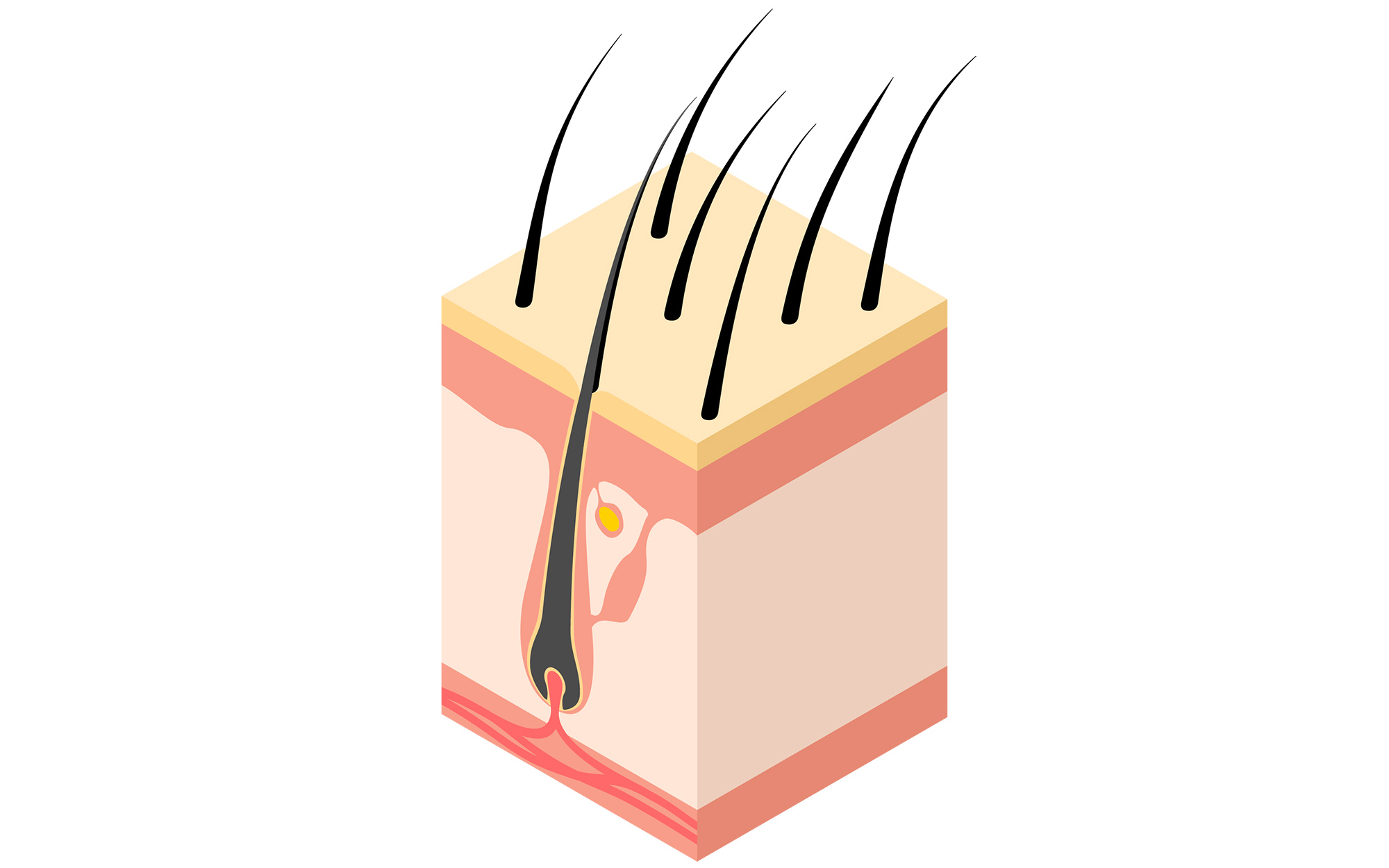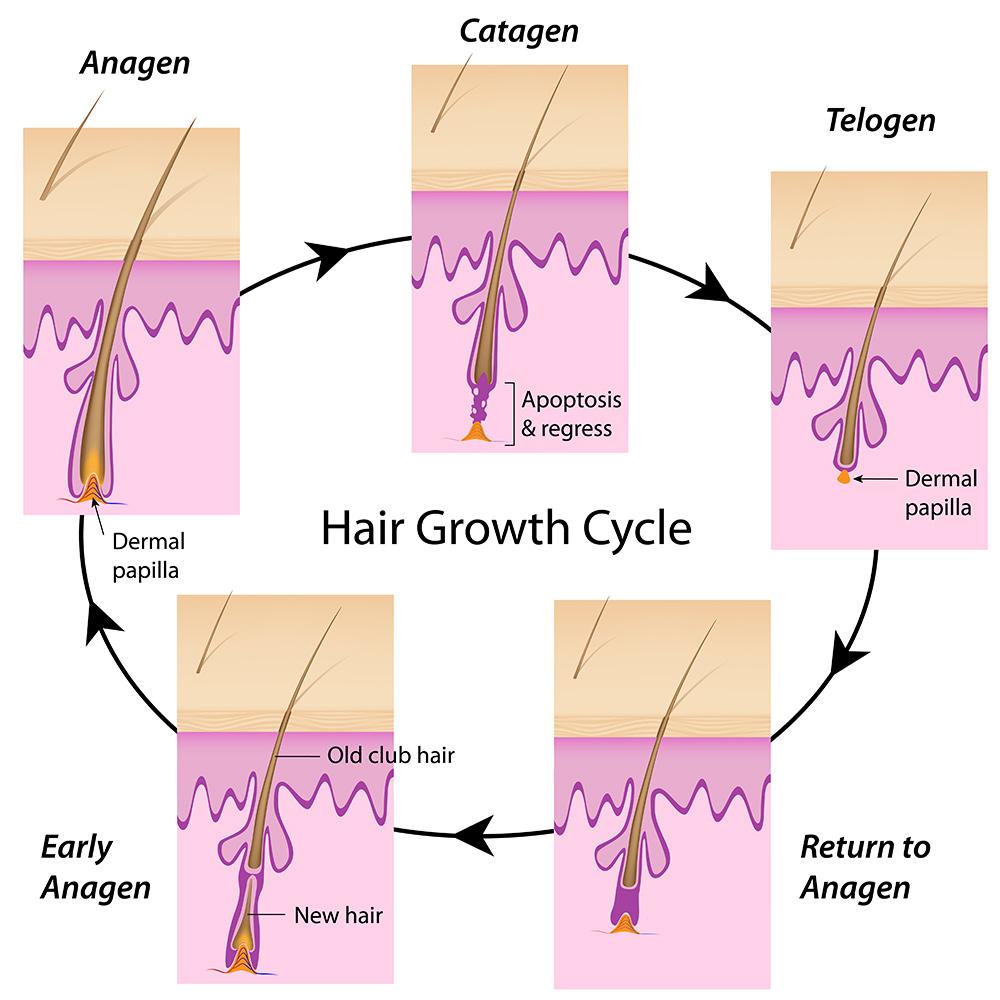
What Are The 3 Stages of Hair Growth?
Anagen Phase (Growth Stage)
Duration: Typically lasts between 2 to 7 years
Characteristics: During this phase, the hair follicles push out hair shafts which are visible as scalp hairs. The hair strands grow actively due to the rapid cell division at the base of the hair follicle.
This growth occurs under the scalp in a part of the follicle known as the hair bulb, where the hair receives nourishment through the blood supply.
Importance: The length of this phase determines the potential maximum length of hair. This is also when new hair growth occurs, replacing hairs shed during the telogen phase.
Catagen Phase (Transition Stage)
strong>Duration: Lasts about 2 to 3 weeks
Characteristics: Hair growth slows dramatically as the hair follicle contracts and detaches from the dermal papilla.
Impact: This phase prepares the hair for the resting phase by transitioning the active hair into a dormant state. This is a critical phase for the follicle’s renewal process.
Telogen Phase (Resting Stage)
Duration: Lasts around 3 months
Characteristics: In this phase, hair growth stops entirely and the hair follicle rests. This phase culminates in shedding where the old hair falls out during brushing or washing.
Outcome: Approximately 10-15% of scalp hairs are in this phase at any time. This natural shedding is a vital part of the hair growth cycle, making way for new hair growth.
What Are The Factors Influencing Hair Growth Cycles?
There are a few factors that influence hair growth cycles:
Genetics: Genetics are the primary drivers of how individual hairs develop through their own natural hair growth cycle. They may influence not only the density but also the colour of one’s hair and the potential longevity of the anagen phase and overall hair growth rate.
Age: As people age, the rate at which their hair grows also decreases. Hair follicles may enter the resting (telogen phase) more frequently which can lead to thinner scalp hairs and less frequent hair shedding and replacement.
Nutrition: Adequate intake of proteins, vitamins and minerals is essential for maintaining robust hair growth.
Health Conditions: Various health conditions such as thyroid disorders can severely disrupt the hair growth cycle.
Hormonal Changes: Hormonal fluctuations are significant factors as pregnancy often leads to a prolonged anagen phase, resulting in thicker, more lustrous hair.
Stress: Stress-induced hair loss, medically known as telogen effluvium occurs when an increased number of hairs enter the telogen phase prematurely due to severe stress.

